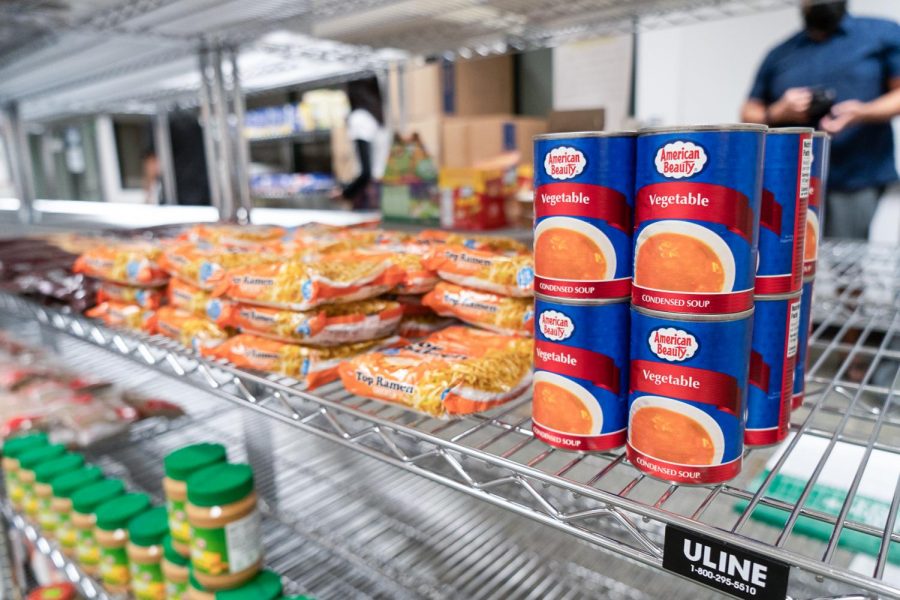Groups offer food assistance
Non-perishable food items sit in Brookhaven’s food pantry shelves ready to be picked up.
September 28, 2021
Assistance programs for the residents of North Texas are opening opportunities for those in need. Such programs have been around for many years helping low-income families get back on their feet. Assistance programs ensure struggling families and students can live a little easier.
The U.S. Department of Agriculture and the North Texas Food Bank worked together to help these programs run efficiently for the area. The North Texas Food Bank distributes food to all parts of North Texas.
Elizabeth Vela, a social service field manager said: “The program benefits everyone, servicing 13 counties. We try to come out to every client. But right now with COVID it is hard. So we are doing a lot of virtual assistance. We go anywhere that is needed, clinics and homeless shelters. We’ve been in parking lots and a drive-thru. Anywhere we know that the need is there, we do try to come out.”
The Supplemental Nutrition Assistance Program(SNAP) allows participants to purchase food through an electronic balance transfer card. “Families should not feel embarrassed or feel helpless because of not being able to efficiently provide. Our program is here for families to be able to get the food that they need,” Vela said. Families can apply for SNAP at yourtexasbenefits.com.
The North Texas Food Bank partnered with Dallas College throughout the pandemic to establish awareness, distribute food and increase volunteer opportunities. They hosted education seminars and walked volunteers through how to assist SNAP participants. Cathy Edwards, an associate dean of student care at the Dallas College Mountain View Campus, is a site navigator teaching students how to help participants apply.
The USDA has programs that support meals for children, which are administered by the Texas Department of Agriculture and Texas Health and Human Services. Programs such as the National School Lunch Program have assisted millions of children nationwide since 1970.
The Pandemic Electronic Benefit Transfer, or P-EBT program, was a part of the Families First Coronavirus Response Act of 2020. The program allowed parents of school aged children who participated in the free and reduced lunch program to have temporary benefits loaded on an EBT card to purchase food.
Lashonda Walker, a food nutrition service manager for the USDA, said, “The organization is taking the best steps possible responding to the COVID-19 pandemic by ensuring access to the P-EBT, increasing SNAP benefits by 15%, and expanding to online purchasing and supporting families.”
For additional information on food assistance programs in your area, you can call NTFB 214-269-0906.



